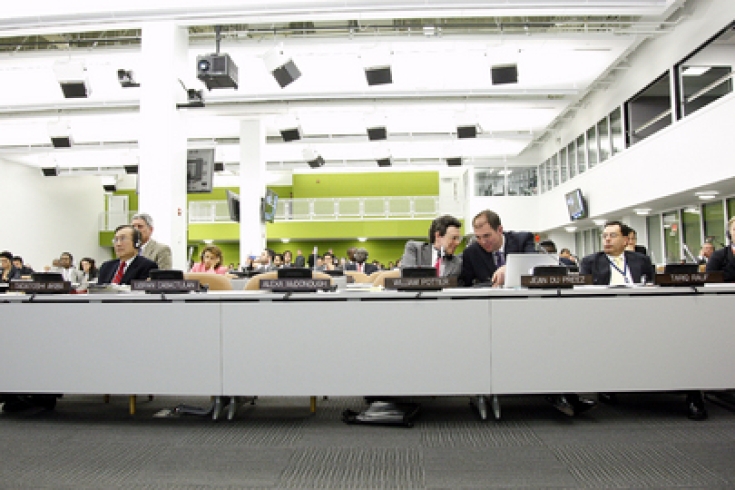Making the whole world
a nuclear-weapons-free zone
a nuclear-weapons-free zone
CTBT’s entry into force to complement NWFZ
On the eve of the 2010 Nuclear Non-Proliferation (NPT) Review Conference, the UN Secretary-General called on participants to support efforts at the conference towards bringing the CTBT into force.

Map showing all five existing Nuclear-Weapon-Free Zones as well as Mongolia which enjoys nuclear-weapon-free status.
Over 100 Member States
Bound in spirit and letter
30 Member States of nuclear-weapon-free zones still to ratify CTBT
“The signing and ratification of the CTBT by these 30 States will make a significant impact on both universalization of the CTBT and its entry into force,” du Preez said and added: “I encourage them to ratify the CTBT without delay.”

Participants discussing at the second Conference on Treaties that Establish Nuclear-Weapon-Free Zones.
Near universal support for CTBT
Civil society representatives commend NWFZ States
4 May 2010
